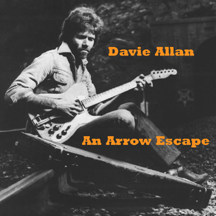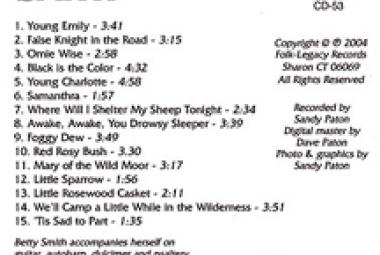Davie Allan is an American guitarist best known for his work on soundtracks to various teen and biker movies in the 1960s. Allan’s backing band is almost always the Arrows (i.e., Davie Allan & the Arrows), although the Arrows have never had a stable lineup. (More from Wikipedia)
Davie Allan and the Arrows is a lesser known surf rock instrumental band, but unlike most, they are still regularly releasing albums. Davie Allan grew up in the San Fernando Valley in California and learned his guitar skills while he was a teenager. He and Mike Curb, who met while in a high school choir in Van Nuys, California, formed an instrumental surf combo. Curb founded Cude Records in 1963 and released Davie Allan’s first single on that label, “War Path”. Several other Davie Allan songs were released by the label under names like the Sudells, the Heyburners and the Zanies.
Mike Curb became a major recording industry professional that can be dated to his founding of Sidewalk Records in 1964 (a subsidiary of Capitol Records). Among other achievements, in this period he recorded the very first tracks by Linda Ronstadt, specifically her first band, the Stone Poneys. Mike Curb was even Lt. Governor of California in 1979-1983 under Governor Jerry Brown – the ageless Brown is also the current Governor of California.
Mike Curb made a deal to supply soundtracks for the many Roger Corman films that came out in the 1960’s by American International Pictures. Roger Corman began using Davie Allan music after hearing his work in the 1965 short film, Skaterdater.
The original line-up of Davie Allan and the Arrows was Davie Allan (lead guitar), Paul Johnson (rhythm guitar), Steve Pugh (bass) and Larry Brown (drums); but there have been a variety of Arrows over the decades since. Their early sides were conventional rock instrumentals, with a remake of the Shadows hit called “Apache ’65” being a particular success.
The soundtrack for the Roger Corman film The Wild Angels (1966) was a breakthrough for Davie Allan and the Arrows and yielded their biggest hit song, “Blues’ Theme”. From Wikipedia: “The song from the film’s opening, ‘Blues’ Theme’ (sometimes listed as ‘Blue’s Theme’), an aggressive, repetitive and very catchy instrumental showcasing [Davie] Allan’s new fuzzed-out (heavily distorted) guitar sound became their biggest hit (it was also one of the first songs Eddie Van Halen learned to play on brother Alex [Van Halen]’s guitar). The song stayed on the Billboard charts for 17 weeks (it peaked at #37); the single, backed with ‘Bongo Party’, and the soundtrack album [The Wild Angels] both sold well. Rumors have stated that the melody in ‘Blues’ Theme’ was stolen from the Monkees’ guitar lick in ‘Last Train to Clarksville’; but ‘Last Train to Clarksville’ was recorded on July 25th, 1966, and The Wild Angels debuted in the theaters on July 20th, 1966.”
Davie Allan and the Arrows supplied soundtrack music for other teen movies and biker movies that followed, such as Devil’s Angels, Thunder Alley, and The Born Losers; they also released studio albums, beginning with the 1965 album Apache ’65.
* * *
Allmusic lists a total of 29 albums by Davie Allan and the Arrows, many being soundtrack albums. I have three of them myself, all on the Bomp!-affiliated Total Energy Records label: Fuzz Fest (1998), The Arrow Dynamic Sounds of Davie Allan & the Arrows (1999), and a live album called Live Run (2000). The live album includes their hit “Blues’ Theme” as well as “Apache”.
Fuzz Fest is a reissue of a 1996 album by Davie Allan and the Arrows that added two other singles, “Open Throttle” and ”Chopper” (plus alternative versions of both songs). Cub Koda writing for Allmusic says of this album: “Davie Allan’s playing has scarcely changed over the intervening decades, his work in various low-rent biker film soundtracks showing how he understands the form possibly better than anyone else. . . . If you’re looking for fuzz and lots of it, you came to the right place.”
(December 2014)















